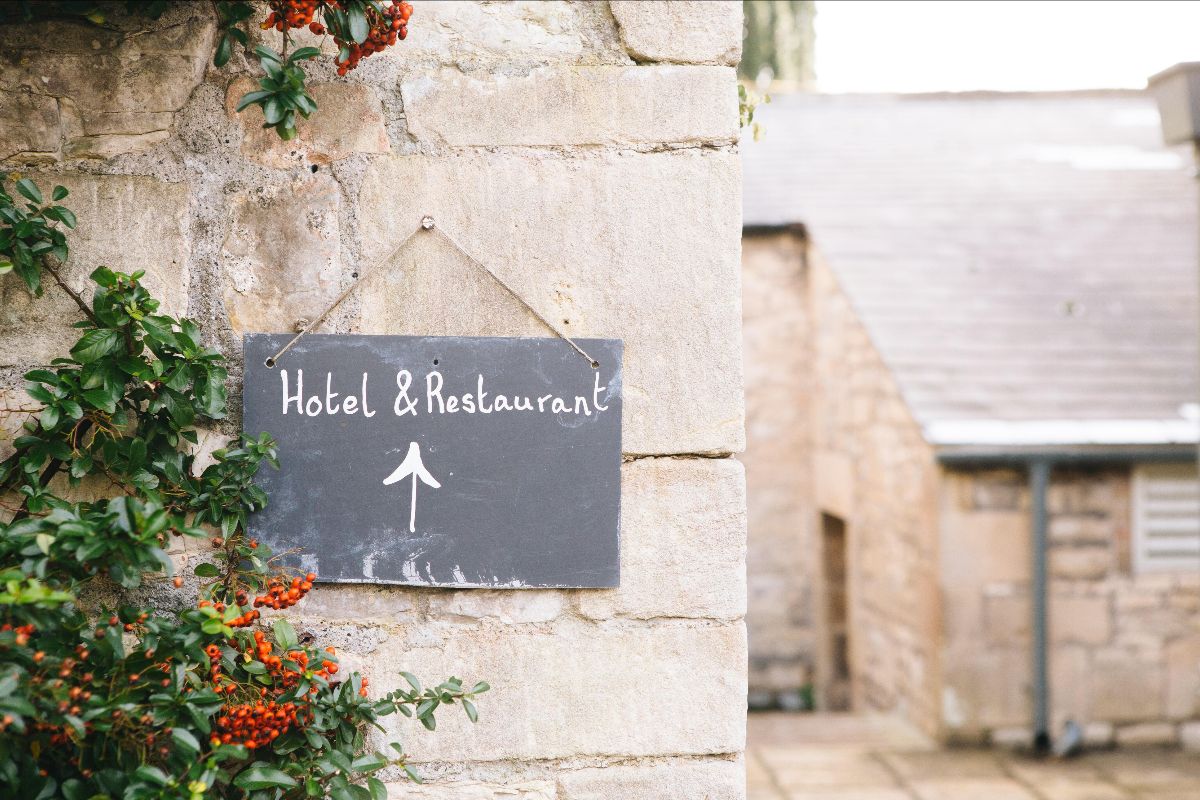The Magic Of Turning Systems Into Checklists
The Magic Of Turning Systems Into Checklists

Our little family of four has been going to the same dentist for the last 15 years. They know us by name and know all the little intricate details about us. They knew when my daughter was running for student council; they knew when my son was getting his driver’s license; they knew I started growing my hair long and they knew when we were celebrating our anniversary (and all the suffering my wife has endured….hahaha). Do you know how I know that they know? Because every time we come in for an appointment, they follow up on what we shared from our previous visit. Did she win the student council? Did he get his license? How’s your big anniversary celebration? Oh, I see you finally got a haircut, looks much better.
They created this simple checklist:
- Casually and naturally ask questions that they care about
- Note the answers
- Review the answers right before the next appointment
- Ask specific questions about what was shared last time
- Ask new questions
This made us feel like they cared. And honestly, I think they truly did care and really enjoyed our visits. I believe that was their intention.
I love the idea of systems. As we talked about last time, the goal of an entrepreneur is to create systems that can be duplicated anywhere by anyone. It can transform our day-to-day operations, creating efficiency so the business can scale. Also, it ensures we’re delivering the same service, same product, with the same quality, and the same experience every time.
I am going to leave you with this one last story from the book E-Myth written by Michael Gerber. The story is called “A Match, a Mint, a Cup of Coffee, and a Newspaper,” and I hope it inspires you as it inspired me to continue to create systems in your business with checklists for all to follow and be accountable for.
The surprising result of all this structure: it actually allows us to be more relational as we serve customers and clients, giving them amazing experiences over and over and over again.
A Match, a Mint, a Cup of Coffee, and a Newspaper
(Michael Gerber, The E-Myth Revisited)
The first time it was an accident; that is, an accident for me. I hadn’t planned to go there.
I’d been driving for seven hours, and, tired of the road, decided to stop for the night before going on to San Francisco.
The hotel was located in a redwood grove overlooking the Pacific.
By the time I walked into the lobby, the sun was setting and the grove had turned dark as pitch.
Instantly something told me that I was in a special place. The lobby was warmly lighted. Redwood paneling reflected the red glow of the light onto beige overstuffed couches that hugged the three walls surrounding the reception desk. A long, dark wood table faced the front door through which I had just entered. On the table rested a huge woven Indian basket overflowing with fresh fruit. Beside the basket stood a massive bronze lamp, its deepest burnished light bouncing off the fruit, adding a festive look to the room. Running the full length of the table and falling down on either end almost to the floor was an intricately crocheted linen cloth, its bright, exotic pattern accentuating the colors of the fruit, the bronze of the lamp, and the deep red ochre of the walls.
At the far side of the table, against the far wall, in a massive fieldstone fireplace, a roaring fire filled the room with the cheerful crackling of its furiously burning oak logs.
Even if I hadn’t been so tired, the contrast between the heat of the flames on my face and the cold of the night at my back would have been enough to attract me to the room. As it was, I practically melted with delight.
Behind the reception desk a woman appeared dressed in a freshly starched red, green, and white gingham blouse and a deep red ochre skirt. A pin with the logo of the hotel atop a red ochre ribbon decorated her blouse like a badge of honor. A matching ribbon held her hair back from a glowing face.
“Welcome to Venetia,” she smiled warmly.
It took no more than three minutes from the moment she spoke that greeting to the time the bellboy ushered me into my room, despite the fact that I had no reservation. I couldn’t believe the ease with which it all happened.
And the room! The overall impression was one of understated opulence—thick, muted pastel wall-to-wall carpeting; a four-poster, king-size white pine bed covered by a magnificent, impeccably clean, white-on white quilt; original graphics depicting scenes and birds of the Pacific Northwest gracing the rough-hewn elegance of the natural cedar walls; a stone fireplace with oak logs already prepared and waiting on the grate for the fire someone knew I would appreciate, paper rolled ceremoniously beneath the grate, and an elegant oversized match lying diagonally across the hearth, waiting to be struck.
Delighted with my good fortune, I changed for dinner; the woman at the desk had made my reservation when she checked me in! I walked out into the night to find the restaurant. A sign by a path outside of my room pointed me down another well-lit path through the dark redwood grove.
The night air was still and clear.
In the distance I could hear the hushed, rhythmic patter of the Pacific Ocean surf. Or was it my imagination? It scarcely mattered; an aura of magic surrounded the place.
The restaurant stood on a knoll overlooking the hotel and the ocean. Until I went inside, I hadn’t seen another person, but the restaurant was crowded.
I gave the maitre d’ my name and he immediately showed me to a table, despite the fact that other people were waiting. Evidently, reservations meant something in this restaurant!
The meal was as delightful as everything I had experienced before it, the food attractively prepared, the service attentive yet unobtrusive. I lingered over a glass of brandy while enjoying a classical guitarist who played a selection of Bach fugues for the dinner guests.
I signed the check and returned to my room, noting on the way that the lights had been turned up on the path apparently to compensate for the growing darkness.
By the time I arrived at my room, the night had become chilly. I was looking forward to a fire and possibly another brandy before going to bed.
Somebody had beaten me to it!
A brisk fire was burning in the fireplace. The quilt was turned down on the bed. The pillows were plumped up, a mint resting on each one.
On one of the night tables beside the bed stood a glass of brandy and a card. I picked up the card and read:
Welcome to your first stay at Venetia. I hope it has been enjoyable. If there is anything I can do for you, day or night, please don’t hesitate to call.
– Kathi
As I drifted to sleep that evening, I felt very well taken care of.
The following morning I awoke to a strange bubbling sound in the bathroom. I arose to investigate.
A pot of coffee, turned on by an automatic timer, was merrily perking away on the sink counter. A card resting against the pot said:
Your brand of coffee. Enjoy! K.
And it was my brand of coffee!
How in the world could they have known that?
And then I remembered. At the restaurant the night before they had asked me what brand of coffee I preferred. And here it was!
Just as I caught on to what they had done, there was a polite knock at the door.
I went to the door and opened it. Nobody. But there on the mat was a newspaper. My newspaper, the New York Times.
How in the world did they know that?
And then I remembered. When I checked in the night before the receptionist had asked me the newspaper I preferred. I hadn’t given it another thought. Until now. And there it was!
And exactly the same scenario has occurred each and every time I’ve returned.
But after the first time I was never asked my preferences again.
I had become a part of the hotel’s Management System.
And never once has it let me down.
The system knows what I like and makes certain that I get it, in exactly the same way, at exactly the same time.
What exactly had the System provided? A match, a mint, a cup of coffee, and a newspaper!
But it wasn’t the match, the mint, the cup of coffee, or the newspaper that did it. It was that somebody had heard me.
And they heard me every single time!
The moment I walked into the room and felt the fire, I knew that someone had thought about me. Had thought about what I wanted.
I hadn’t said a word, and yet they had heard me.
The moment I saw the mints on the pillows, the turned down quilt, and the brandy on the table, I knew that someone had thought about me. Had thought about what I wanted.
I hadn’t said a word and yet they had heard me.
The moment I heard the coffee pot perking in the bathroom and saw the card that identified it as my brand, I remembered that someone had asked for my preference.
And they had heard my answer.
The instant I saw the newspaper and recognized it as my newspaper, I remembered that someone had asked.
And they had heard my answer.
And it was totally automatic!
Every single element was an orchestrated solution designed to produce a marketing result, and integrated component of the hotel’s Management System.
After my third visit to the hotel, I asked to speak with the Manager.
I wanted to find out how he was able to produce the identical results for me every single time.
How could he make certain that someone would ask the right questions so as to ensure the correct results for each and every guest?
Was it because he hired extremely competent people?
Were the employees owners?
Was it some kind of special incentive system?
The Manager was a young man of twenty-nine. He invited me into his office to talk. It was well-lit, modest in size, and overlooked the redwood grove I had walked through to get to the restaurant. His desk was clean and neatly organized, not a loose paper in sight.
“This is very orderly young man,” I thought to myself.
“Perhaps he’s the reason the hotel works so well.”
The young Manager obviously enjoyed his job, because he warmed immediately to the conversation about his work and the task of producing the results for which he was held accountable by the hotel’s owner.
“You know,” he said, smiling self-consciously, “it’s funny sitting here talking to you about what we do here at the hotel. Because until five months ago, the only experience I had in the hotel business was as a guest for two nights at a Holiday Inn in Fresno three years ago.
“In fact,” he continued, “before this job I was working as a short-order cook at a restaurant nearby. The owner and I got to know each other. He asked if I’d like to learn the hotel business, and before I knew it, he hired me. Everything I know about the hotel business I’ve learned here.
“Here, let me show you.”
He reached behind his desk for a red binder. Printed on the spine were the initials OM and the logo of the hotel.
“What we do here is simple. Anyone can do it.”
He opened the binder to the table of contents.
“This is our Operations Manual. As you can see, it’s nothing but a series of checklists. This one is a checklist for setting up a room.” He opened the book to a yellow page.
“This group of pages is yellow. Everything in the Manual is color coded. Yellow has to do with Room Setup. Blue, with Guest Support Services. For instance, when we light your fire at night, put the mints on your pillow, and so on.
“Each checklist itemizes the specific steps each Room Support Person must take to do his or her job.
There are eight packages of checklists for each Room Support Person waiting in their mailbox when they come in every day. Each package of checklists is used for one of the eight rooms the Room Support Person is accountable for.
“As a Room Support Person goes about the process of taking care of his or her eight rooms, a checklist is completed to confirm that the work was performed according to the standards. As you can see, here at the bottom of the checklist is a place for the RSP to sign, indicating that he or she did the prescribed work.
“To sign and not to have done the work is grounds for instant dismissal.
“But there’s another part of the system that really makes it work.
“On the back of each checklist is a drawing of the specific room that identifies each task to be completed, and the order in which it has to be done. The drawing takes the RSP through the routine, and, as they complete each task, they check off the corresponding part of the drawing to show that it was done.
“With the drawing we can train new people almost instantly and have them producing a result identical to that of a person who’s been with us for quite some time.
“As added insurance, my RSP Supervisors run spot checks every day to make certain that any errors are caught in time.”
He paused and smiled. “But there are rarely any errors. They system works like a charm.
“There’s an equally effective system for everything we do here. The fact is, the owner worked it all out in advance. The lighting, the sauna, and the pool are timed electronically and synchronized with the seasons, so that they deliver a predictable result to the guests. For example, you might have noticed that at night the outdoor lights increase in intensity as it gets darker. That’s done automatically. No one has to think about it.
“I could give you lots of other examples, but I think you get the point. The whole thing was put together in a way the owner believed would make a positive impression on our guests. You’d be amazed at how many people come up to me after staying here just to thank me for how well they were treated.
“But it’s not the big things they talk about; it’s always the little things.”
I could understand and believe all he had said, but still I asked, “How do you get your RSP’s to use the checklists? How do you get them to use the system? Don’t they get tired of the routine? Doesn’t it get boring for them?”
“Ah,” said my willing host. “That’s where we really shine.”




Leave a Comment